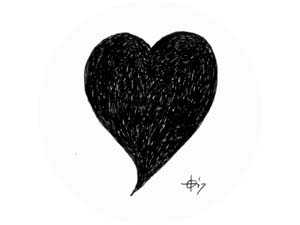Reinekke Lengelle
In my book on bereavement, I wrote about a number of topics that I didn’t find a lot about in grief resources I read.
These were the hardest things to write about.
- Unfinished business with the deceased
- What to disclose about one’s life
- Ongoing sexual desire
- (Last but not least) repartnering
There is a lot we don’t say, and sometimes for very good reason. On the other hand, there is freedom in at least being honest with ourselves.
Writing is one way to do that. It’s a way to tap into your own wisdom. Wisdom, if seen as a quest, means dropping everything that you want to believe about your identity that isn’t true. Many stories about ourselves are an attempt to hold ourselves together. If we really want to be free, the invitation is to give up our “identity maintenance”. It was liberating for me to be able to say and write: my spouse is dead, I grieve him and in my grief there is also anger at what was unresolved between us, and I miss him, even sexually, and I am still sexually alive despite his death. Me loving someone else includes Frans and I talk about him openly with my new partner.
How we fell asleep
I told you how my other lover had died
how he had held me until
he couldn’t and for a while
his warm body was still familiar in my arms
until, of course, death stiffened it
and they laid a cooling element under
what we still called him, but wasn’t.
You said, that must have been so hard
and we drifted to sleep tender and emptied
of our cares
a tear printed and still wet between my cheek
and your jaw.




